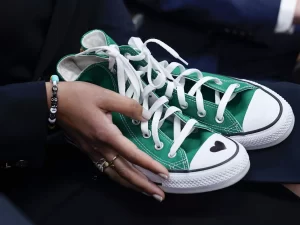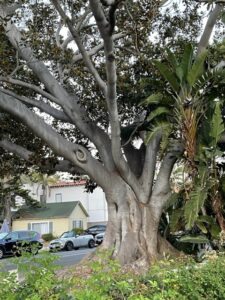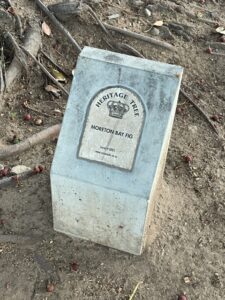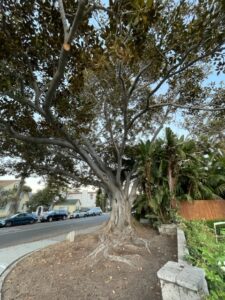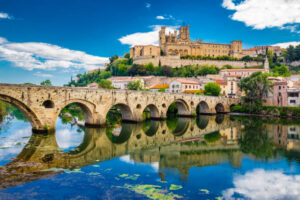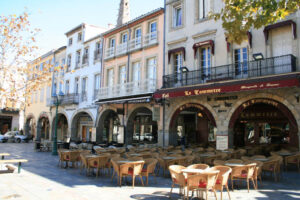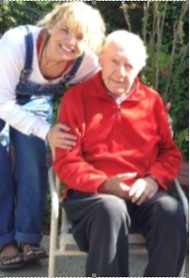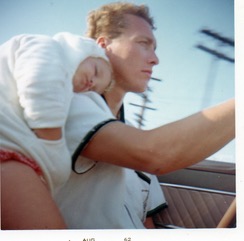Ayana Elizabeth Johnson
June 19, 2022What if we get this right?
The next generation marine biologist Ayana Elizabeth Johnson, a policy expert and writer, and a Brooklyn native.
Her thoughts on hope…better served as possibility:
‘While I’m not a fan of hope as a guiding principle, because it by definition assumes that the outcome will be good, which I know is not a given, I am completely enamored with the amount of possibility that’s available to us. So that’s the word that I try to embrace when I think about what if we get it right, is how much possibility remains.’
[Love this.]
‘And we live in a species moment, is how I think of this. It was probably true, pre-2020, but it is clear, post-2020. And I believe that underlying every grave and wondrous potential that we have as a species, and ratcheting up the panic that leads us away from rising to our highest human capacities, in every sphere of our life together, each of us knows and feels the disarray of the natural world at a cellular level, in our bodies. What is true is that we are not separate from it. It’s not even so much that we are in it — we are of it.’
We are one of 8 million or so species on this planet.
Krista Tippett:
‘(Johnson) is cofounder of the Urban Ocean Lab, a think tank for coastal cities. She co-created Spotify-Gimlet’s podcast How to Save a Planet, on climate solutions. She coedited this beautiful climate anthology, which I had not discovered until now, and I so recommend it: All We Can Save: Truth, Courage, and Solutions for the Climate Crisis. And also, you’re cofounder of the All We Can Save Project, which I recommend that people look up online. I love how you stress, in the description of that work, that you’re nurturing the “we” in that “all we can save.”’
Johnson:
I’ve always been focused on solutions. I have this extremely practical approach to most things — I’m like, OK, who’s doing what? What’s the plan? Like, let’s not talk about feelings so much; let’s figure out what’s next. And so that is the vibe that I’ve tried to take into my work as it’s broadened from oceans to climate more generally, is we have most of the solutions we need at our fingertips, for all of these climate challenges, whether it’s agriculture or green building retrofits or bike lanes or composting or wind energy in the ocean or farming seaweed or whatever. We know how to do this stuff. We just have to do it. And so figuring out how we can welcome more people into this work, get people excited, help them find where they fit, is really where I’ve been focusing my yammering energies, these days.
I mean, the most depressing thing I can think of is to just watch the world burn and crumble before my eyes while I just wallow in self-pity on the couch. Right? So I don’t have any delusions that I can “save the planet,” but you’ve got to try to do your part.
And that’s how I think about all of this. We know what we’re supposed to do, in that same way that you were describing we know that it’s wrong right now. We know that things are out of balance, on a cellular level. We can feel that sort of friction, with the way that we move through the world. I mean, I dare you to stand in a redwood grove and not be humbled, or to dive on a coral reef and see even just the glimmer of its former magnificence and have some respect for these ecosystems and the fact that we are sharing this planet.
So I think that climate communication has focused too much on the problem. I will admit, I don’t read the details of every UN climate report, because I know the summary is, it is worse than you thought, it is happening faster than you thought, and we really need to get our act together. And I focus on the getting our act together part, because I think that’s the pivot that we need right now. We have more than enough information. I’m grateful for the science, and it’s helping us make more nuanced and clear decisions, but the broad strokes that everyone needs to pitch in, have been there for a long time.
Eunice Newton Foote
Tippett:
There’s a whole lineage that you are in — names we don’t remember, people who’ve contributed. And I wonder, also, just —
Johnson:
It was Dr. Katharine Wilkinson, coeditor of All We Can Save, who introduced me to Eunice. I feel like I’m on a first-name basis with her, even though she was doing her research in 1856, when she discovered that carbon dioxide was a greenhouse gas and would warm the planet. A woman discovered this through experimentation in her backyard and was essentially erased from history. An Irish physicist a few years later came to a very similar discovery and was credited as “the father of climate science.”
Tippett:
Someone with a Y chromosome.
And Eunice also signed the Seneca Falls Convention.
Tippett:
Oh, really?
Johnson:
So she was, as Katharine and I like to say, the first climate feminist — although she didn’t really see this whole apocalypse coming, per se. [laughs] She was just like, This turns out it will warm the atmosphere, if we emit all of this carbon dioxide.
This conversation, a must listen, was recorded at the 2022 TED Conference. Click the box above.
“To whom much is given, much is expected.”
Listening to this podcast with Johnson, a marine biologist, I remembered the sweet and very real aspirations of 10-year-old Maite Rodriguez. A student brutally murdered at the school in Uvalde, Texas. Maite was a lover of animals and the environment, and she dreamed of becoming a marine biologist. She often wore a pair of green (her favorite color) high-top Converse shoes with a heart drawn in marker over her right toes. The work I do going forward for our planet, for the oceans, will be in Maite’s memory, a life cut short because of access to automatic weapons in the United States.
-dayle
Held at press conference in D.C. Maite was wearing green Converse shoes when she was massacred with other students and two teachers in Uvalde. The only way her little body could be identified were by her green high tops. She drew the heart on the right toe.
For Maite. For Uvalde. For our planet. 🌏
Sunday, June 19th, 2022
[All trees should be ‘heritage’ trees.]
After a virtual hiatus to relocate [sanctuary] from a state quickly and widely falling into oppression, marginalization, nationalism, and White Supremacy, a post to remind us that humans are but one species of 8,000,000, and yet it is the species bent on destroying the planet, the human species. Maybe the arc of survival is tied to the moral arc. We are failing.
❧
Coming soon to Soon to Dayle’s Community
Café beginning two weeks from today:
dayle in limoux ❀
It’s a play on Emily in Paris. J’adore. So fun. Please connect and comment in our community space during my travels. My virtual column will focus on the beloved historic Languedoc region [Occitanie] in south-west France. And! The Tour de France will be passing through later in July. Energies are shifting, moving. Movement. ‘Emovere.’ Possibility, again, possible. And re-imagining what once was into what is.
À bientôt.
Limoux, Occitannie, France.
❧
Seth Godin:
The Arc of History…(and hers)
By every geologic measure, modern human life is a tiny blip, a spark of static on a very long-playing record.
For most of the time that life has existed on Earth, there were no humans. And when there were human-like creatures, they spent much of their time doing not much. Nomads eat when they need to, move around and hang out. It’s not an easy life, but there are none of the modern distractions or problems that urban culture presents.
Grain began to change things, because agriculture produces far more calories per acre, allowing populations to grow… and to store the results of our labor. Stored grain, though, is easier to steal and to tax than something that must be eaten fresh off the tree or harvested.
And so you get markets and wars and governments and the rise of a group of people wealthier than any individual farmer or nomad could be.
This is all mostly irrelevant. It’s irrelevant in the way that understanding how Edison made movies or sound recordings is irrelevant. It’s nice to know the history, but it doesn’t help you win an Oscar or a Grammy.
The two most relevant forces are in a powerful dance right now:
• The carbon-fueled growth of industry.
• The information-fueled growth of ideas and connection.
Industry changed the way the Earth looks from space, it enriched billions of people and it has driven our species to the brink of extinction due to our impact on the climate. It has often been based on caste and coercion, and created both opportunities and problems.
Connection has enabled culture to thrive, and in recent years, amplified by the noise of the internet, it’s also made many people miserable in the short-run.
As we slog through another long, challenging year, one in which these two forces conflict, amplify and engage with each other, I’m remembering what Theodore Parker said more than 150 years ago:
I do not pretend to understand the moral universe, the arc is a long one, my eye reaches but little ways. I cannot calculate the curve and complete the figure by the experience of sight; I can divine it by conscience. But from what I see I am sure it bends towards justice.
We really don’t have a lot of choice about yesterday. Here we are, many of us with more leverage and power than any human on Earth had just a hundred years ago.
In the last few decades, so many areas of culture have moved forward that defenders of the status quo are becoming exhausted trying to defend what was. And they sometimes express that exhaustion through anger, division and vitriol.
The good news is that we have exactly what we need to make things better. If enough of us stand up and lead and connect, we’ll continue to get closer to what’s possible.
Here’s to peace of mind and possibility. They go together.
And potential. And purpose. -dayle
Happy Father’s Day, dad.
Only love.
Robert Dale Ohlau
1937-2017
